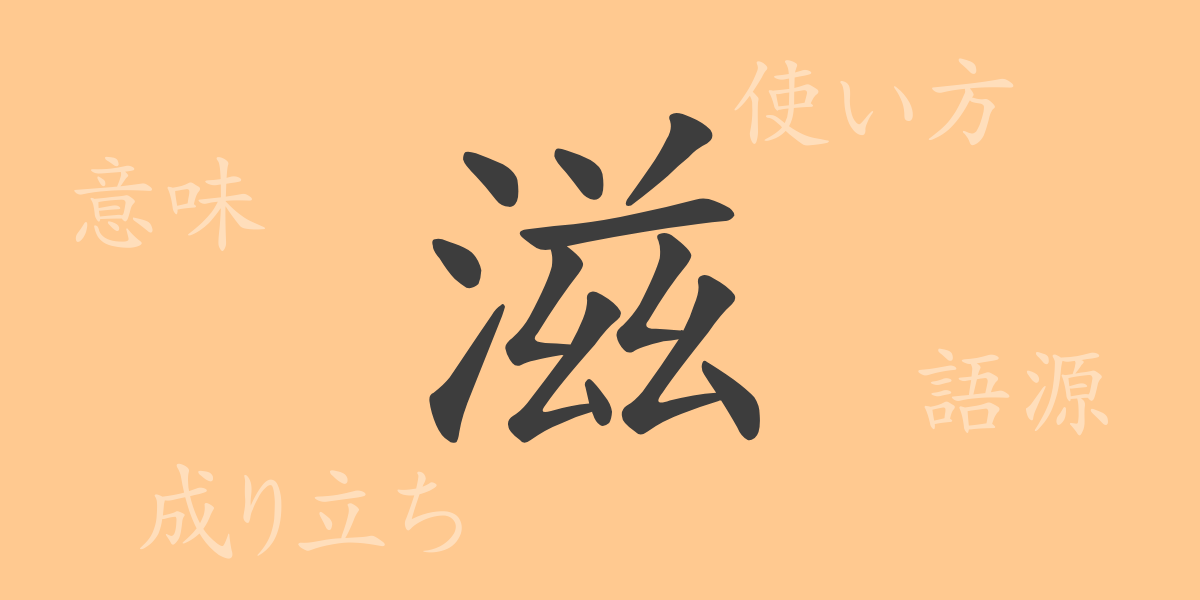Kanji, deeply rooted in Japanese culture, each carry unique histories and meanings. Among them, the character “滋(じ)” is commonly seen in daily life, yet its full significance and origin might not be well-known. This article focuses on the common kanji “滋(じ),” exploring its etymology, meaning, usage, and related idioms and phrases to uncover its charm.
Origins of 滋 (Etymology)
The kanji “滋(じ)” originated in ancient China, symbolizing the nurturing effect of water on plants. Its structure combines the water radical “氵” with the component “𠂤” (symbolizing growth). This combination depicts how water nourishes plants, leading to abundance. The meaning is carried into words like “滋養(じよう)” (nourishment) and “滋味(じみ)” (flavor), reflecting the concept of enrichment and nourishment.
Meanings and Usage of 滋
The character “滋(じ)” means to nourish and enrich, implying the act of providing nutrients to promote growth and enhance well-being. Commonly used in contexts like “滋養(じよう)” and “滋味(じみ),” it suggests support for making something more abundant or improving its state. It can also refer to enriching one’s mind and spirit.
Readings, Stroke Count, and Radical of 滋
The kanji “滋(じ)” is familiar in daily life, but its readings and structure are often less known.
- Readings: The on’yomi (音読み) is “ジ,” and it has no kun’yomi (訓読み).
- Stroke count: “滋(じ)” consists of 12 strokes.
- Radical: The radical is “水” (water), indicating its connection to nourishment and growth.
Idioms, Phrases, and Proverbs Using 滋
Idioms and phrases featuring “滋(じ)” often carry positive meanings related to nourishment and enrichment. Here are some examples:
- 滋養(じよう): To provide nourishment and support growth.
- 滋味(じみ): The deliciousness of food or the subtle charm of something.
- 滋養強壮(じようきょうそう): To strengthen and invigorate the body.
- 滋養満点(じようまんてん): To be full of nutrients.
Conclusion on 滋
The kanji “滋(じ)” symbolizes the blessings of water and growth, as its character suggests. In Japanese, its meaning extends to various aspects, from food to mental enrichment, playing a crucial role in supporting our lives. When encountering “滋(じ)” in daily life, remember its profound significance and the richness it brings to the language.

























